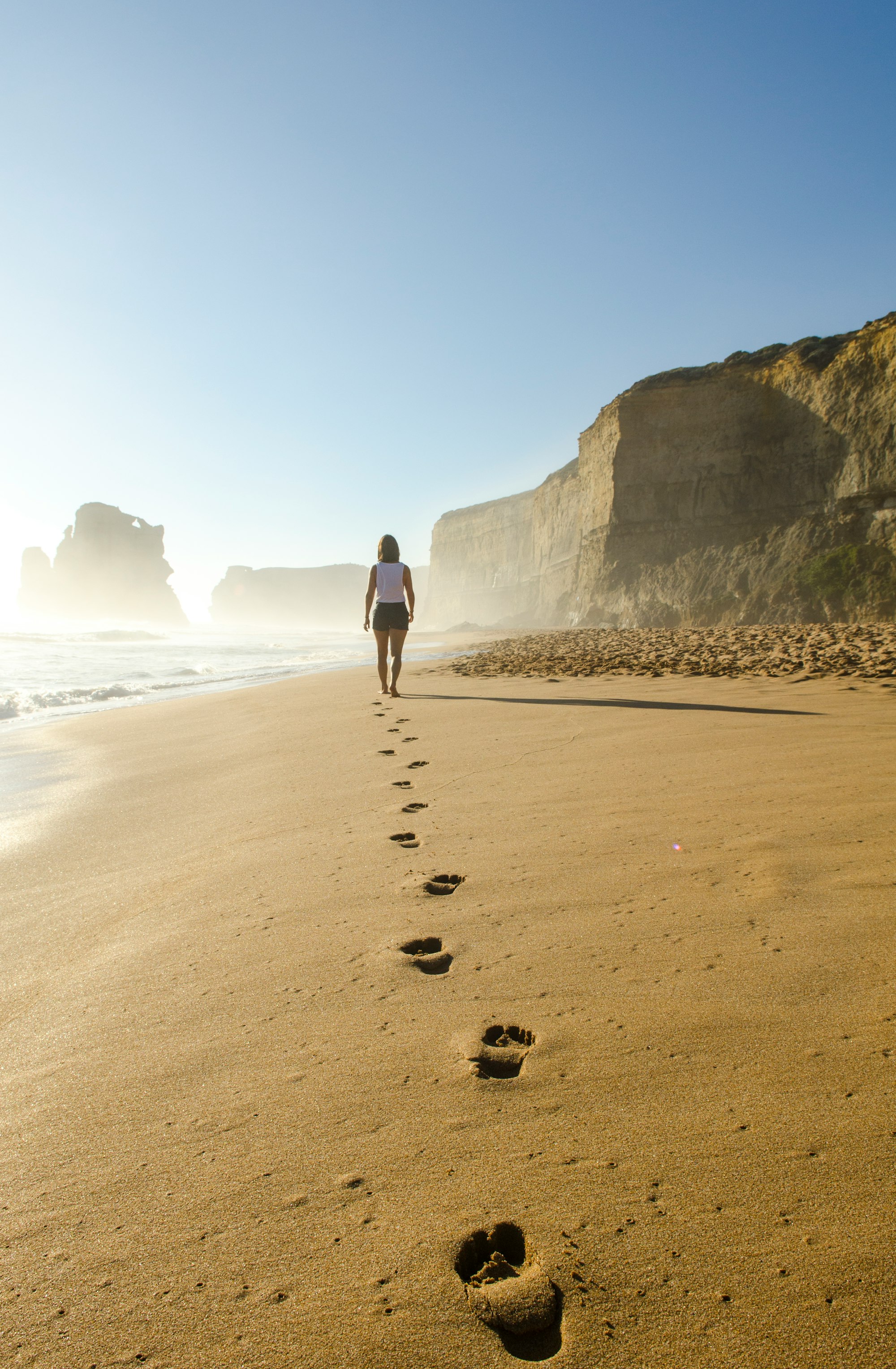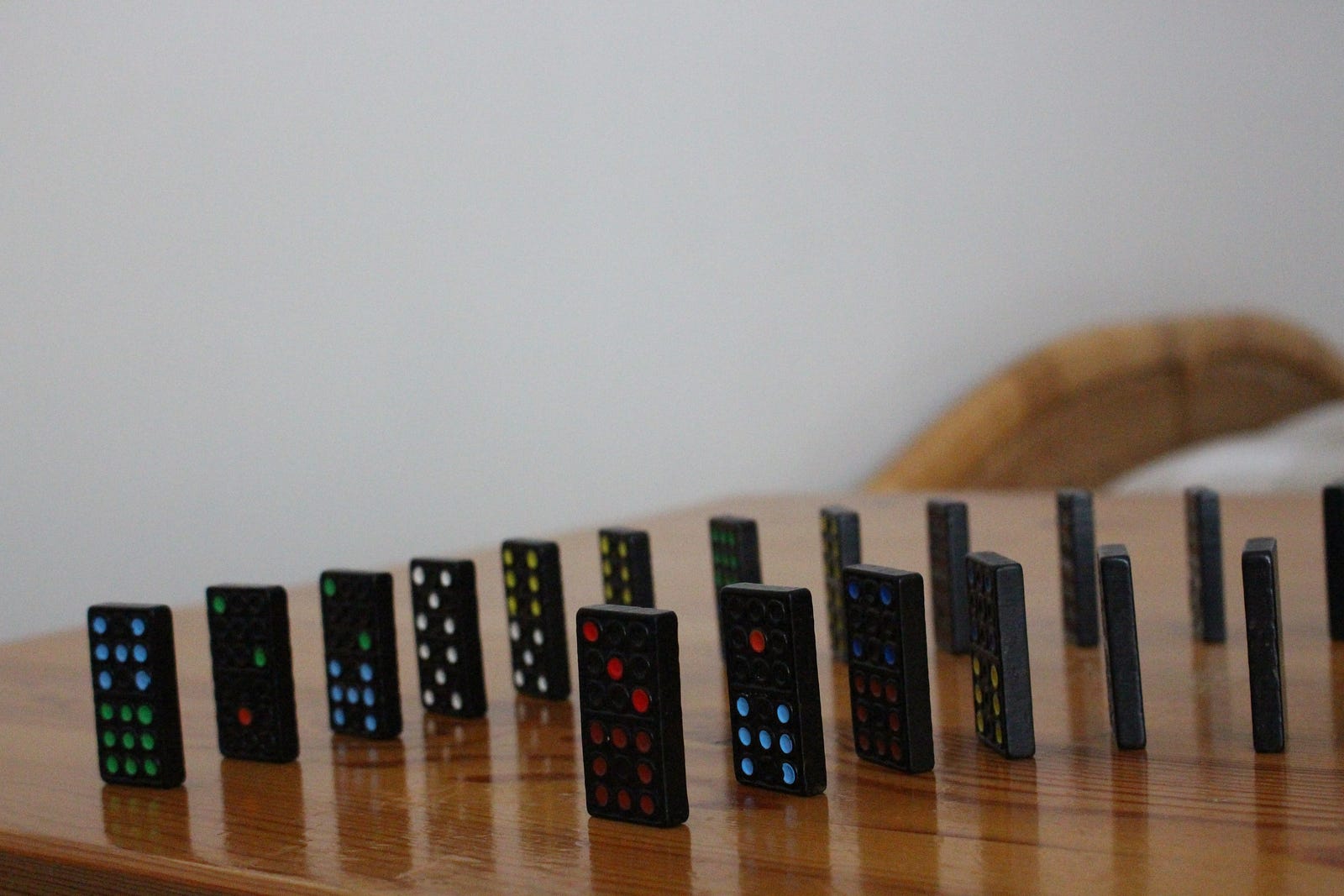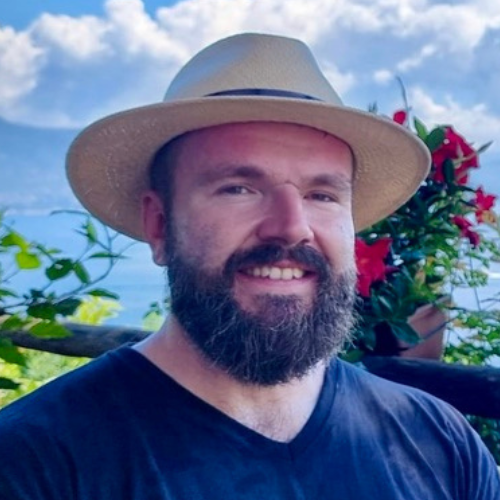The Joy of Walking and 11 additional benefits

Until 10 years ago, at the age of 25, I didn’t know I could go outside just to walk, without any specific goal like getting the groceries, going to university or meeting friends. It just wasn’t in my lifestyle toolkit.
If I had known what I missed out on that misconception.
Fast forward 10 years, aged 36, I’m an avid walker and as healthy, informed, serene, and balanced as never before. And this without compromising any of my other time-consuming activities like reading, career progress, or passion projects.
From my experience, personal transformation works best if you introduce little habits that act like dominos: implement one (ideally simple) change and tackle many other personal transformation goals automatically. This way results will come naturally to you, without any conscious effort and thus the risk of failure is minimized.
Systematic walking is such a simple transformation domino block. A life hack. I will give you a brief introduction to the Why, the How and the What of the joy of walking in the following three paragraphs:
- Why did I start walking and what did it bring me?
- What are the specific benefits of walking?
- How to implement it systematically?
To whom do I recommend reading this text?
- Everyone who wants to adopt a healthy lifestyle in a pragmatic way
- Anyone who sees walking not as a goal but only as a means

Why did I start walking and what did it bring me?
Writing this, my first reaction was to tell that in my case starting walking was aimed at being a pragmatic way to lose weight. But this would be a lie: like I said in the introduction, with 25 I didn’t consider walking as an activity in itself.
The true reason why I started walking was that I felt lonely. As an introvert and computer nerd, I didn’t need much social interaction to be sustainably happy. But after graduating from university, I nonetheless fell into a hole of loneliness as most of my friends left town while I stayed.
Especially in summer, I couldn’t stand sitting in my booth alone while people were outside enjoying the sun. At that time I hadn’t anyone to call. So what did I do? I got outside on my own, hoping to see someone I know by chance. My first rounds were just around the block, like 2 km in total, 4 times a day. Later I extended my round to the neighbourhood, so 4 km, 3 times a day.
And it worked! It’s not that I found new friends on my walks, but simply being outside, being among people, or maybe even catching eye contact helped to feel connected to humanity at large. With the transition to my next life chapter (a decade of consulting work), the loneliness quickly vanished and eventually I didn’t need walks to feel connected anymore.
But at this stage, I had learned about all the benefits of walking and henceforth understood walks as a tool to leverage quite a few benefits and to bring joy into any day.
What are the specific benefits of walking?
The primary advantage of walking is that it is much more enjoyable than those things in life, that you want to approach to change yourself. In fact, for me personally, walking is the only activity I enjoy for self-improvement. All other activities feel like work and chores.
And this is exactly the reason why walking works and thus leads to the following benefits:
- Walking is one of the best ways to lose weight. In my case with a height of 196cm and weight of 120kg, I initially burned up to 100kcal per 10 Minutes of walking (~8-9min/km pace). So two 1-hour walks brought me a calory burn of 1200kcal, which is a big deal for something that doesn’t feel like exercise at all. Since walking won’t give you much of additional appetite, as more intense exercise can do, you will shred your fat quite quickly. In my case, I was able to drop my weight from 120kg to 95kg by regular walking in only 7 months. Right now, in a much more trained state than I was then, I’m still burning 55kcal per 10 minutes according to my Apple Watch, which is still good.
- Walking improves your heart rate greatly. Initially, I started with 12k steps per day. Nowadays I usually accomplished 30k steps every day. While I was walking more, faster, and more regularly, my heart rate also decreased. My walking HR was usually at 120 beats per minute quite high in the beginning (really nearly exercising level). Eventually, the walking HR sank to 85 beats per minute. At the same time, my resting HR sank from 75 beats per minute to 50 beats per minute, which is an indicator of greatly improved cardiovascular fitness.
- Walking can bring your VO2MAX to a superior level. This is a metric estimated of your smartwatch based on your heart rate while exercising, i.e. running at a certain pace. The higher the speed you can maintain while running, the higher your VO2MAX. The correlation is so accurate that based on the VO2MAX it is possible to estimate pretty accurately your time for a half marathon for example and vice versa.
When I got my first Apple Watch, a Series 4, my VO2MAX was at 39,6. This is a below-average value. With walking, my VO2MAX raised to 54, which is a superior value for my age. So, Walking not only reduced my weight but also improved my health greatly. - Walking improves your mental health and reliefs stress. I never understood why meditation and mindfulness practices were such a thing. At some point, I understood why it was of no use to me: because walking was my meditation and mindfulness practice and in that better than anything else! Walking forces you into just the right balance of “having something to do” and “being able to think about something”. It works like this: I walk the same route every day. Day after day, step by step. My walking got literally into a walking routine where my body is on auto-pilot while my mind is free to think without distractions and monkey-brain self-talk. There is no better opportunity to reflect, plan or just be in the moment, than on a walk on auto-pilot.
- Walking magically crunches work problems and generates new ideas. The mental capacities set free by walking on auto-pilot (see point 4) can not only be used for personal reflection but also crunch problems, create plans and generate ideas or strategies for work. I use this for task management in my professional career as an innovation strategist and tech consultant. I often have tasks that are important but unclear. Unclear in the sense that I have either not yet properly grasped the meaning & purpose, or simply do not know how exactly to proceed. Walking helps here because while walking you can only think about the task at hand and not do much more.
Well-thought-over tasks are much easier to accomplish and lead to results of much better quality. While walking and thinking about tasks, the answers on how to proceed come like magic to you: what are the actual to-dos? What’s the best story to tell? How to design your PowerPoint slides? Whom to speak to? How exactly to formulate a difficult email? Which tasks can be grouped? What can I suggest to my boss and co-workers? How to quick win? And so on.
This is the reason why I divide my working day in such a way that I try to go for at least a short 30-minute-walk during work after blocks of 1.5–2 hours latest. This stretches out the workday a bit, but helps productivity tremendously! - Walks can loosen up your home office (a bit). Since Corona, my job transformed into a full-time home office. And with many people who are in a similar situation, I observe a thinking fallacy: Many think, that even in the home office the only way to work is to sit 8 hours at a time at the desk, maybe only divided by a short lunch break. I don’t see a reason for that, at least in my filter bubble. I take a different approach here. I start my home office day with a walk from 08:00 to 09:30. Then again, I go walking at 13:00–14:00 and 17:00–18:00. Since there is enough time left at the desk for my individual work and team calls, this already would work sufficiently well as it is. However, you can even improve it a bit: by doing those team conference calls, that are more about discussions than desktop sharing, simply on the go! In fact, it improves teams call enormously because when you are walking you can focus much better on what the other person is saying because you are less distracted.
- Walking saves your back. I am 196cm tall and prone to back pain. Since the time I fragment my day — every day — with walks, I’ve never had any back pain again. I guess the regular walks just to soften the impact from the otherwise too much desk time.
- Walking helps you stay current and to learn new things. If you walk a lot, at some point you don’t feel like thinking and being alone with your thoughts anymore. This is where listening to music, podcasts and audiobooks come into play. I personally use Spotify and Audible for the following routines: Especially in my morning walks I like to listen to daily and weekly podcasts, e.g. politics, world news, tech news, investment discussions and so on. My afternoon walks are mostly about tackling thoughts and problems which is where I like to stick to music. In the evening walks, I switch to audible and learning through listening to professional literature and popular science publications.
This one is a game-changer. You can have the joy of walking, the health benefits, learning new stuff AND be up to date with world affairs at the same time. How cool is that! You can’t use time more effective. - Walking can help replace addictions, e.g. smoking or drinking too much coffee. The trick is simple: when you feel the urge to smoke or to drink coffee, just take a short walk outside. Eventually, the trigger for an unhealthy action will be replaced by walking as healthy action. It won’t solve serious addictions, but it can make a crucial difference.
- Walking helps make new friends. If you walk regularly the same route, eventually you will recognise — and be recognised — by the people also regularly outside for whatever reasons. The first step is usually mutual recognition: you greet each other with a quick nod. The step to a short conversation is then not far away.
For me the last two years, the social walking highlight has been meeting an old acquaintance by chance in the morning when she takes her child to kindergarten. Thus, for two years, each workday we talked for like 5 to 10 minutes about news, thoughts of the moment and plans. Thus for me, this old acquaintance became a good friend and an essential part of my walking routine. - A system of daily walking creates a basic order in your life. Especially in times of corona, lockdown and home office, the step to neglect is not far away. I’ve seen it in colleagues of mine who stopped shaving, dressing well and doing their exercise. Walks protect you from neglect because they force you to show yourself to the world on a regular basis. You wake up in the morning and you’ll make yourself ready for the first walk of the day. And with that, you’re automatically ready to tackle anything.
How to implement walking systematically?
In principle, it’s fairly easy: just go outside, explore your surroundings and walk routes you like. Repeat your favourite walks and discover ways to use the walking time, as described above. Your walks will automatically become more expansive, sophisticated and effective.
A word of warning: don’t overload walks with too much expectation. What I’ve described above may sound like magic, and it’s true, but you only realize it in retrospect. You won’t be a healthier and more balanced person after a first set of walking. But you will be as soon as it sticks as a new fundamental habit of yours.
Therefore, during your first walks, your only job is to observe yourself and see what exactly about the walk you enjoy: Is it the fresh air? Is it the movement? Is it the observation of people?
Once you have identified what is the enabler for you, walking will be the enabler for the benefits described above.
To conclude the article, a few tips for advanced walkers:
- Empower your motivation through gamification. Use your smartphone or smartwatch as a step counter and set yourself goals. You’ll notice that if you miss your goal by 2k steps or so, you’ll be motivated for another short walk in no time. Days, when you didn’t get enough walking in, will bug you
- I recommend iterating the following step counter levels: 7k, 12k, 15k, 20k and finally 25–30k steps. Anything beyond 30k steps takes too much time away from the day.
- Use good walking or hiking shoes. Due to the many steps your soles unfortunately won’t last long (for me about 3–4 months per pair). Consider it a necessary cost for all the benefits of walking.
- Treat yourself to a good pair of earbuds. I myself found the AirPods Pro far too expensive at first. However, their ANC (“Active Noice Cancellation”) helps to get quickly into the mental “flow”, to be less distracted and to better understand audiobooks/podcasts. As a home-office worker who takes part in team conference calls at times, you also need good microphones.
- Walk fast. The faster you go, the better the health effects will be. I myself try to walk just fast enough so that it doesn’t look ridiculous (which in my case is about 08:30 min/km as ridiculousness limit)
- Use walking for additional exercises in the context of your self-improvement. Some examples: exercise breathing (nasal breathing, abdominal breathing); exercise the wording for presentations; exercise confidently walking with long, purposeful strides; exercise; Practice holding eye contact; exercise empathy by deciphering facial expressions, gestures and actions of people you see); take online training on Coursera & co.
- On walks, ideas bubble up as if from an ideation machine. Set up your smartphone for quick note-taking. I myself use notion for my productivity notes. But while working, I don’t have the time to assign thoughts and ideas to the appropriate notes. The solution is to have an inbox where all text, photo and audio recordings end up. At home at the desk, it then takes the habit of regularly emptying the inbox and assigning the contents to the appropriate notes, such as work tasks. I implemented my text/photo inbox in Apple Notes, and I use the iOS App “Just Press Record” for voice recording.
Join the Deliberate Diligence Community for more details on how you can improve your health & fitness in a deliberate way!

Discussion